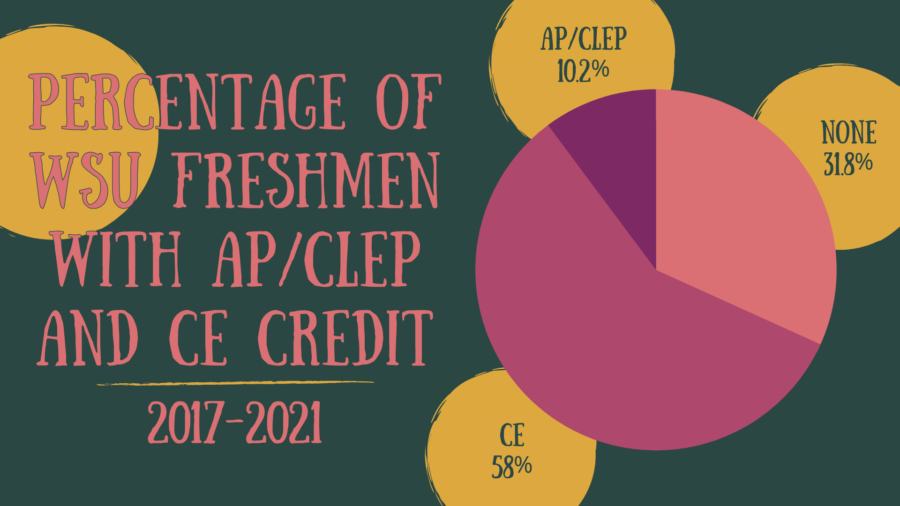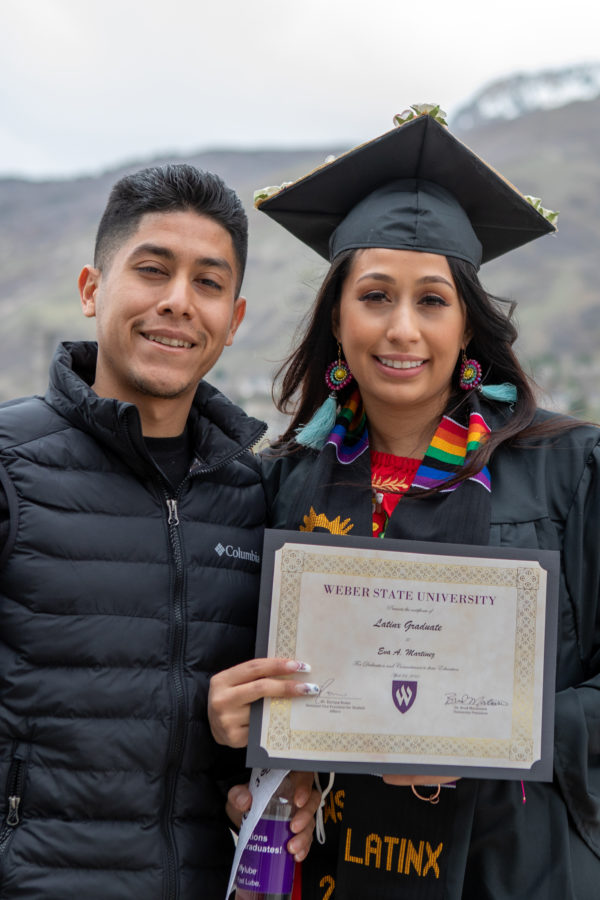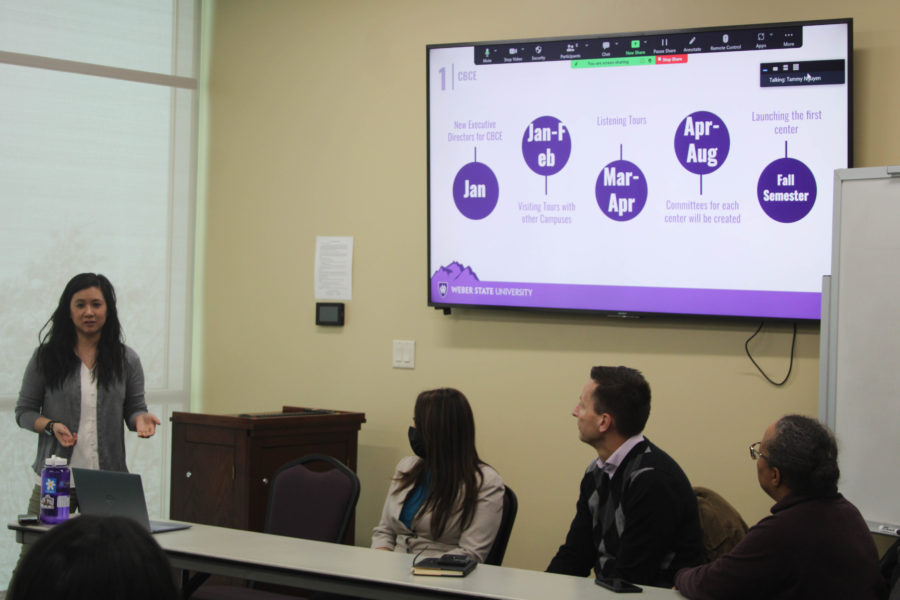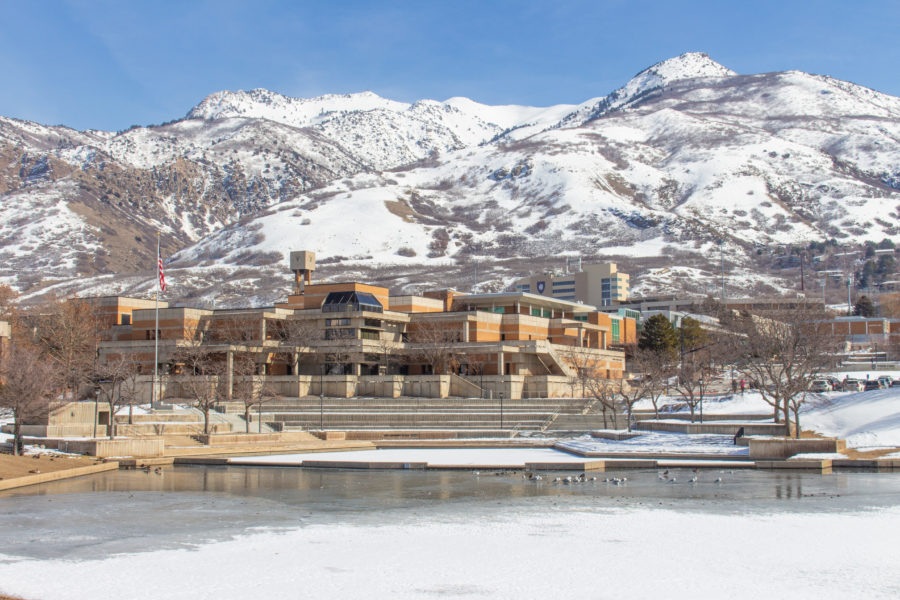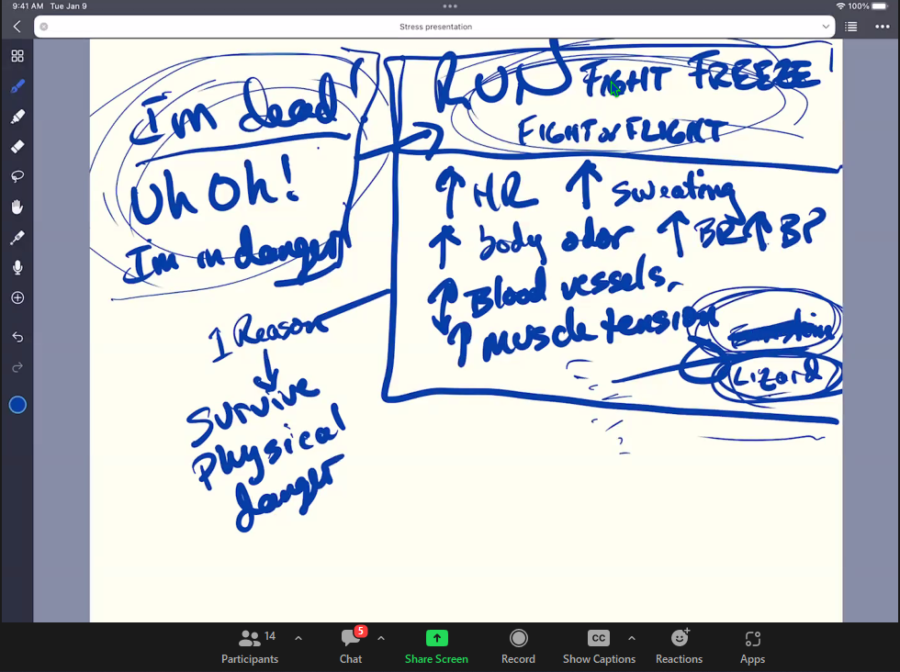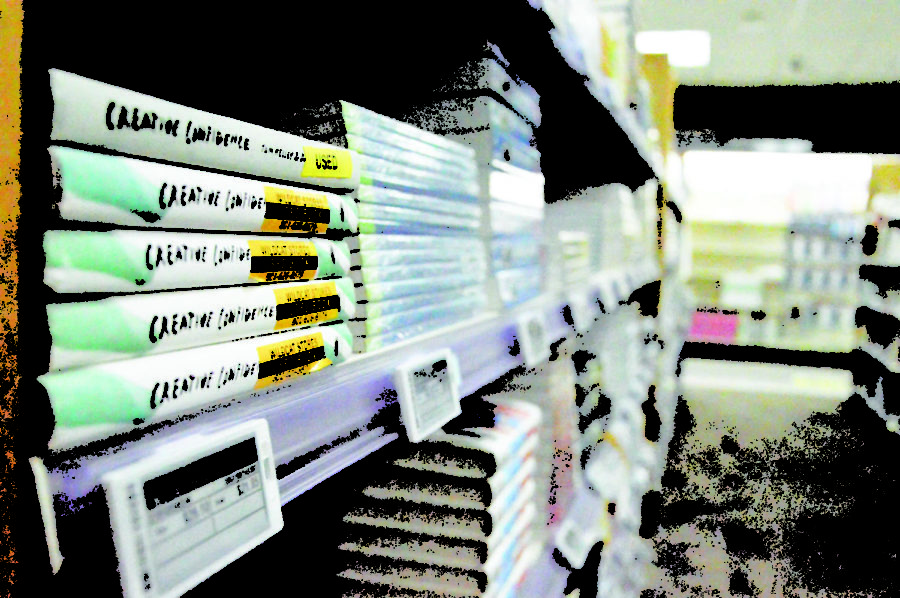It is the start of a new decade, and that means the U.S. Census Bureau will be undertaking the tremendous task of gathering population data from all over the country.
Media specialist Coralys Ruiz Jiménez, from the Dallas regional census center, urges everyone to answer the nine question survey provided by census workers. Their data collection efforts will begin on March 12 and go through July 31.
When Ruiz Jiménez was younger, she did not realize that, as a Puerto Rican, her family members’ voices could be heard. However, once she understood how the census worked, she grew a passion for it.
Now, she wants to teach young people about how the census works so they will not feel afraid to be themselves.
Weber State’s Center for Community Engaged Learning (CCEL) invited four census workers as panelists to encourage college students to participate in the upcoming census. The main focus of the 2020 census, according to census partner specialist Ali Omran, is funding and representation.
Event panelists reminded the audience that, because the census only happens every 10 years, it is critical that students understand why it matters.
According to Associated Students, Inc., a student run nonprofit group, the census is essential for redistricting, fair representation and providing billions of dollars for college students.
Additionally, the census ensures U.S. citizens receive proper representation on state and federal levels. Redistricting provides more accurate representation for congressional and state legislative districts. This helps to keep up with demographic changes in local communities. Census data helps to direct the distribution of billions of dollars of federal funds towards causes citizens may find to be important.
However, census data collection is not without its challenges.
According to the panelists, college student demographics are considered “hard-to-count” because of the temporary nature of college student populations. Some of those “hard-to-count” data points include students who are non-white, recent immigrants and first generation college students.
Poor and otherwise disadvantaged communities are included in the “hard-to-count” category. The largest “hard-to-count” location in northern Utah is in Ogden, between 25th and 31st streets.
According to panelist Mallory Bateman, the lack of participation in the 2010 census had a severe negative effect on the city’s funding. Additionally, it missed over two million children, 3.7 million African-Americans and 3.8 million Latinos nationally, according to the Faith in Public Life advocacy group.
The CCEL event panelists argued that if people do not answer the census questionnaire, the federal government will miss out on important data, and this could lead to unfair representation and funding.
One audience member, Betty Smauldon, shared her passion and interest for the census effort. Smauldon works for the Northern Utah Coalition and partnered with the state to receive more information about the 2020 census.
“I remember as a kid, my parents would fill [the census] out,” Smauldon said. “Now I am older, and I realize the importance of it: the infrastructure, the buildings, schools, education. The funding that is needed for those things comes mostly from the census.”
Panelists addressed the concerns of those who may be intimidated or worried about the data collection by the 2020 census. Title 13 of the U.S. legal code protects individuals’ and businesses’ private information from being published.
Additionally, U.S. Census Bureau employees are sworn to honor and protect people’s information according to the rules of Title 13. If employees violate the law, they could face a prison sentence of up to five years, be given a fine of up to $250,000 or both.
Editor’s note: The initial version of this story stated that the U.S. Census Bureau will be collecting data from March 12 through April. Their data collection efforts will actually extend through July 31, and the story has been updated to reflect this information.




